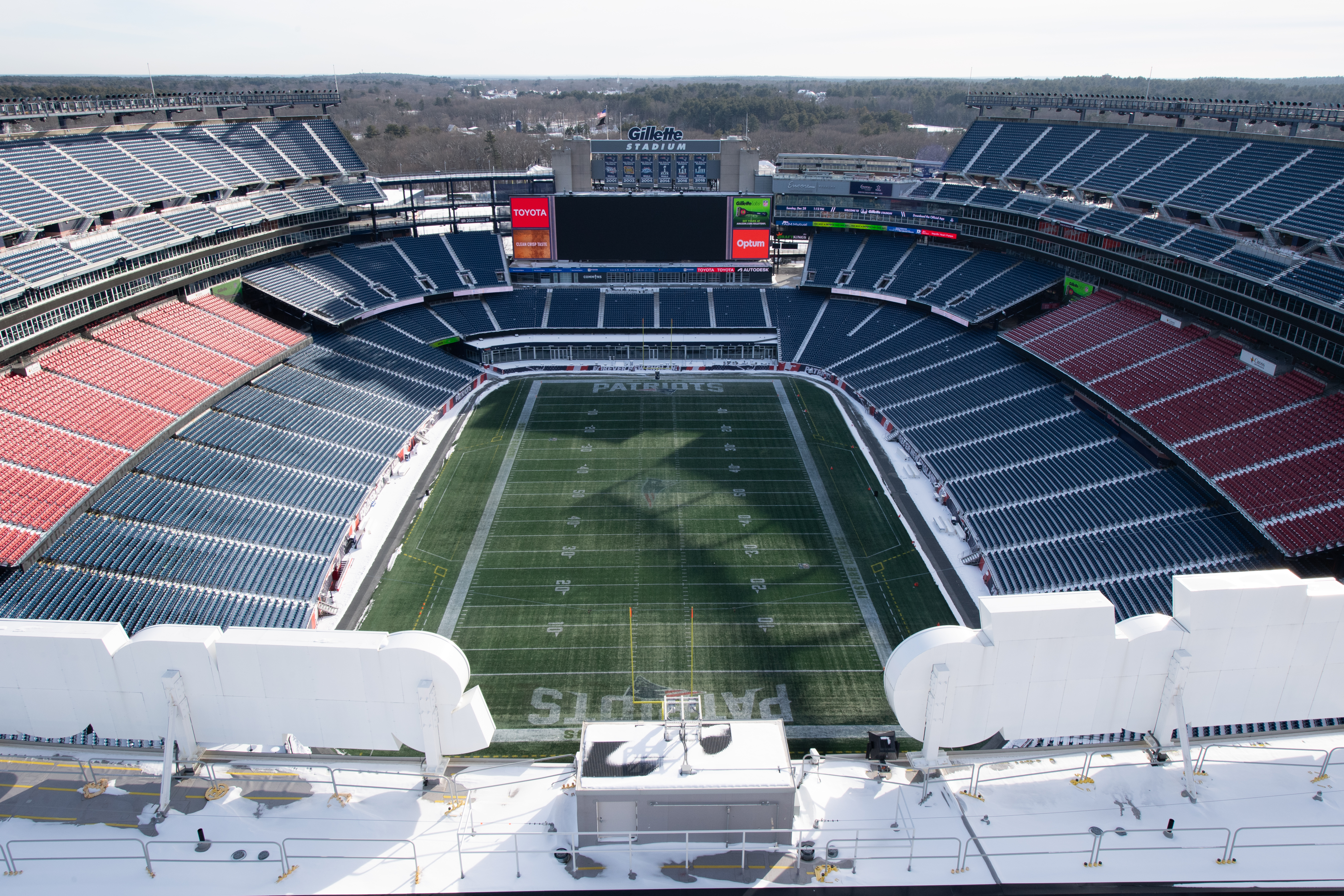Ranked! The 10 best players of World Cup 1986
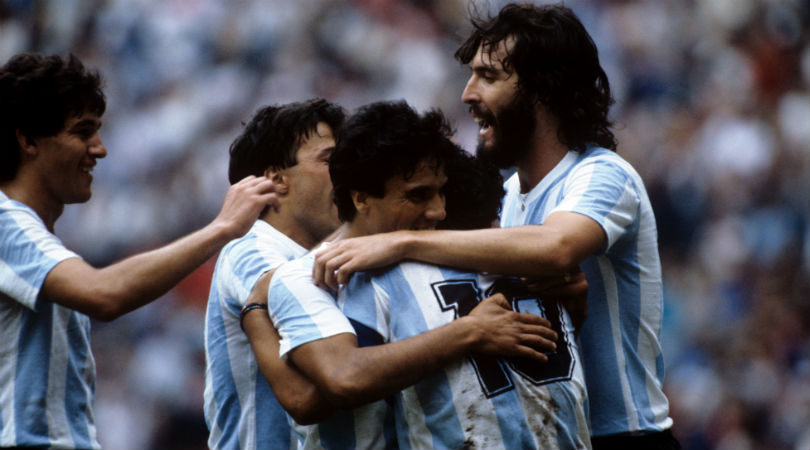
The best from 1986
Mexico ’86 is held in some quarters to be the last truly great World Cup. Characterised by prolific goalscorers such as Emilio Butragueno, Gary Lineker and Careca and fuelled by creative geniuses like Enzo Francescoli, Michael Laudrup, Enzo Scifo, Michel Platini, Zico, it was a fantastic tournament full of drama, storylines and, of course, great players. Here are the top 10...
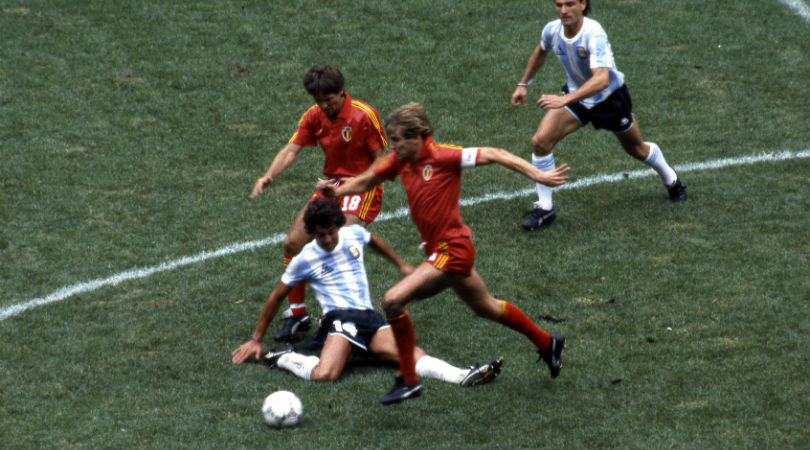
10. Jan Ceulemans (Belgium)
Belgium were somehow less than the sum of their parts in Mexico, with a spine of real talent muddling their way into the quarter-final of the competition before being unpicked by Diego Maradona. But throughout the tournament, the awkward, brave, bony figure of Ceulemans stood out as a classic leader of the line and targetman.
His diving header against Spain from Franky Vercauteren’s cross was true class, and he was the captain of a squad containing Franky Vercauteren, Jean-Marie Pfaff and Eric Gerets.
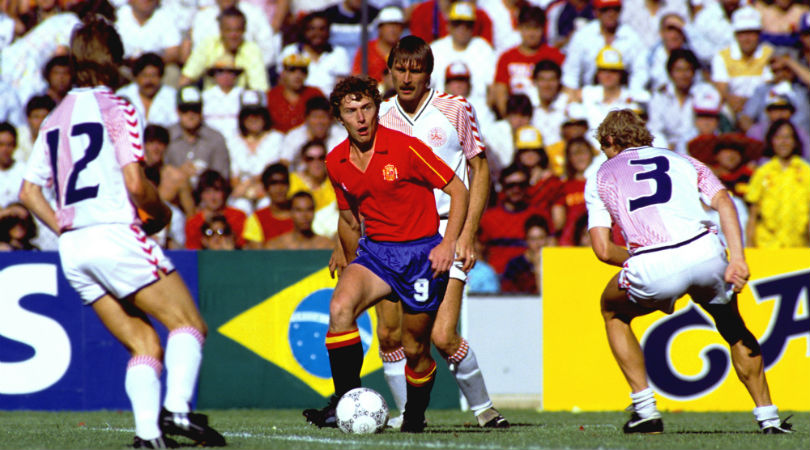
9. Emilio Butragueno (Spain)
The Vulture was lifted to the pantheon with his performance against highly-rated Denmark in the round of 16, scoring four goals to eliminate one of the best teams of the era. The Danes of Preben Elkjaer, Michael Laudrup and Jesper Olsen were 1-0 up when, two minutes before half-time, Butragueno capitalised on a catastrophic Olsen mistake to level the scores.
His work wasn't done there: the striker then headed in from a corner, converted a cross from Eloy, and was brought down for two penalties, the second of which he converted in a 5-1 win. He also netted a spot-kick in the shoot-out defeat by Belgium in the quarter-finals.
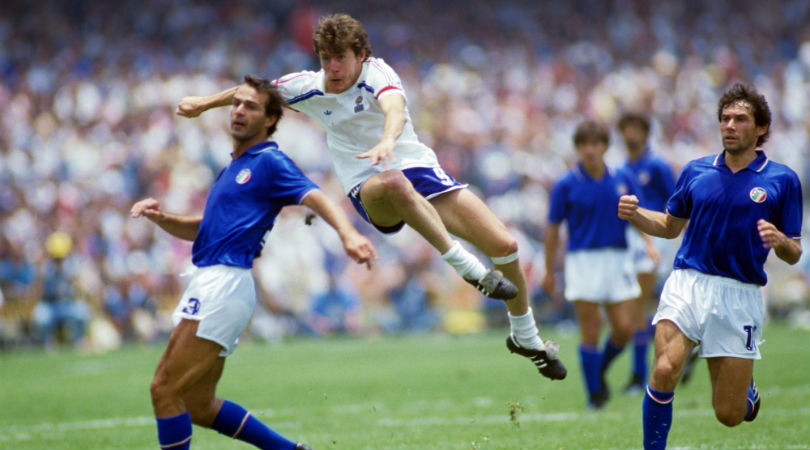
8. Luis Fernandez (France)
A quarter of the famed French midfield Le Carre Magique, Fernandez stepped in to the role of general with talisman Michel Platini struggling with tendonitis. While arguably the least creative of the Magic Square, which also contained Jean Tigana, Alain Giresse, and Platini, Fernandez was still a gifted player whose talents afforded France stability.
Disciplined, positionally smart and a wonderful reader of the game, it was his cross that laid on the goal against Canada, and he tucked away Alain Giresse’s pass against the USSR. Fernandez also scored the decisive penalty in the shoot-out defeat of Brazil in the last eight.
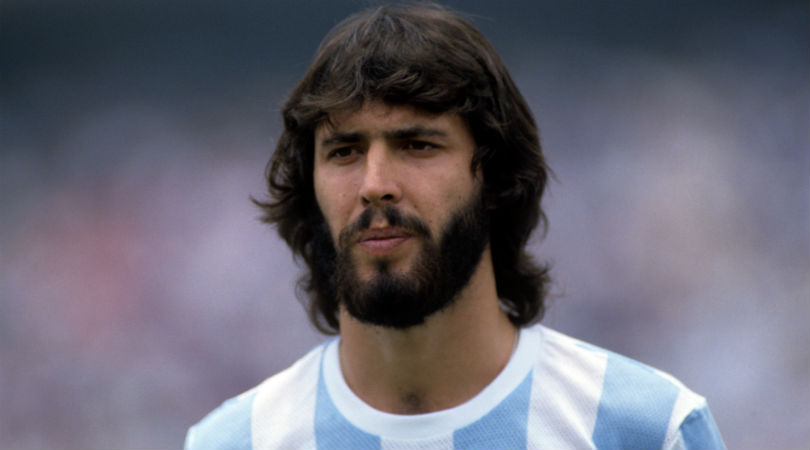
7. Sergio Batista (Argentina)
It's simply not true that Maradona, while undoubtedly Argentina's star man, won the 1986 World Cup alone. The Albiceleste's star man was moved further up the pitch to play just off striker Jorge Valdano by coach Carlos Bilardo in the quarter-final, leaving Jorge Burruchaga to play a more creative role in midfield.
This meant that the bearded Batista was left to operate deepest in midfield, just in front of an experimental back three. He was a ball-winner capable of dropping into the backline where necessary, but he also set the tempo of Argentina's play with his passing.
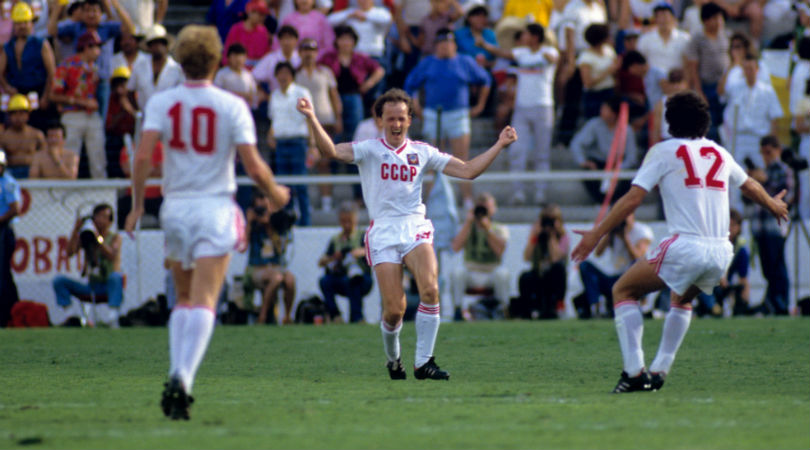
6. Ihor Belanov (USSR)
Legendary Dynamo Kiev coach Valery Lobanovsky had taken over the job of national team manager from Eduard Malofeev just weeks before the 1986 World Cup, calling up much of the Dynamo squad he had coached to Cup Winners’ Cup glory earlier that season.
Midfielder Belanov had scored five times in the Cup Winners’ Cup campaign and carried his extraordinary form into the World Cup, pulling the strings in the USSR’s 6-0 battering of Hungary and scoring a penalty in the process. He was the heartbeat of a side which reached the last 16, where the Soviets were beaten by Belgium despite Belanov's hat-trick.
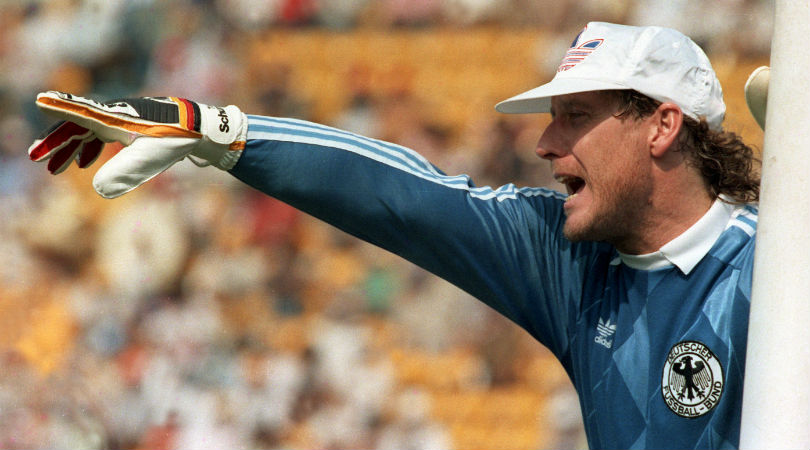
5. Harald Schumacher (West Germany)
German shot-stopper Schumacher is infamous for his assault on Patrice Battiston at the 1982 World Cup in Spain, but when he wasn’t knocking French defenders unconscious he was actually a tremendous goalkeeper.
Schumacher was the star of West Germany’s stuttering run to the final in 1986, and even captained the side when Rummenigge was unavailable through injury.
He produced his best display in another semi-final against France, making a string of fine saves to keep the score at 1-0 before Rudi Voller added a late second. He was also key to West Germany’s victory over Mexico in the last eight, denying Fernando Quirarte and Raul Servin in the shoot-out.
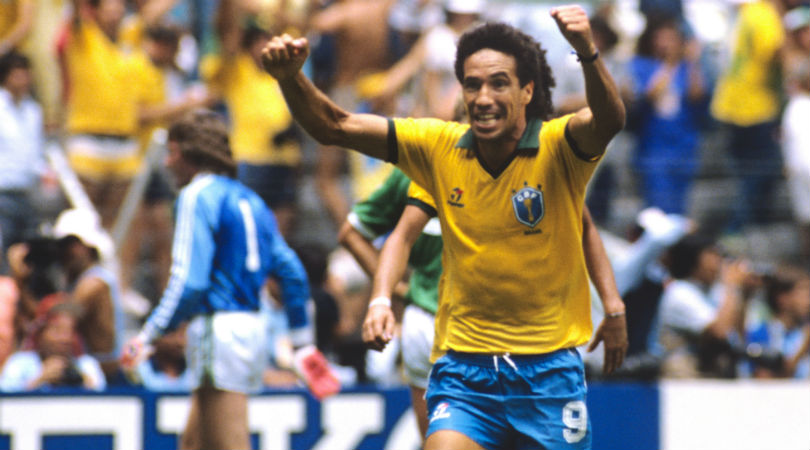
4. Careca (Brazil)
The loss of Careca for the 1982 World Cup left Brazil and the rest of the world wondering what might have been. When the striker was fit and healthy in 1986, he was surrounded by ageing talents – Zico was 33 years old, Socrates and Falcao 32 and Junior and Oscar 31. The rest were inexperienced, with 10 players going into the tournament with fewer than 10 caps.
His first goal of the tournament was a tap-in against Algeria, but both of his strikes against Northern Ireland – a crisp drive through Pat Jennings’ legs and then a clever shot in at his near post – showed a finisher at his absolute peak. A penalty followed against Poland, before he swept Brazil into the lead in the quarter-final, only for France to hit back and win the game on penalties.
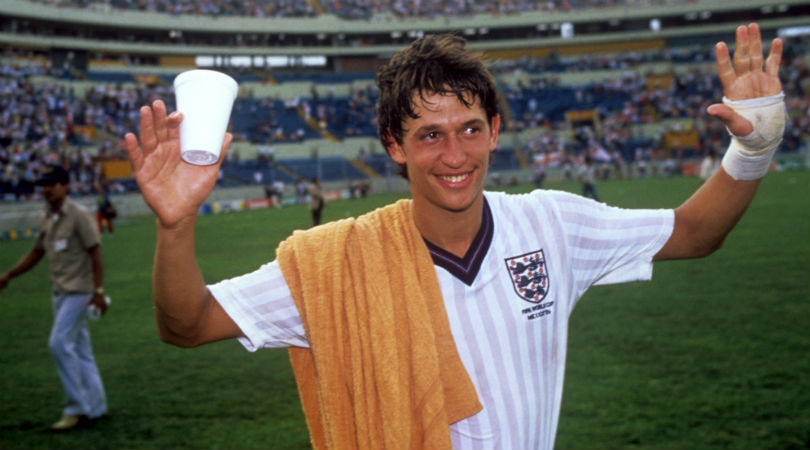
3. Gary Lineker (England)
England were in serious trouble in the group stage in 1986. They’d lost to Portugal in the opening match, only managed a draw with Morocco in the second and early pressure from Poland in their final group encounter pointed towards an early exit from the World Cup for the Three Lions.
A hat-trick from Lineker settled the nerves and set England on their way into the knockout stage of the tournament – and the striker wasn’t quite finished yet. He went on to score six in total as the Three Lions reached the quarter-finals, where his late strike against Argentina wasn’t enough to counteract Diego Maradona's double.
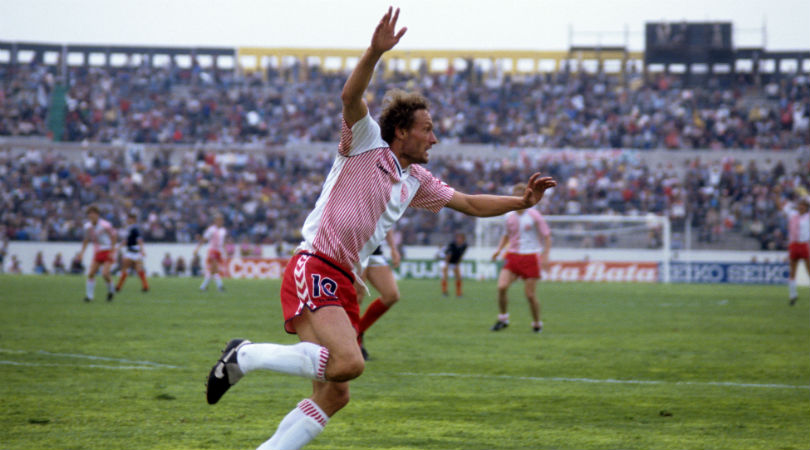
2. Preben Elkjaer (Denmark)
The Danish Dynamite were one of the very best national sides of the 1980s and early 1990s, boasting incredibly talented players in Jesper Olsen, Jan Molby, Soren Lerby and, of course, Michael Laudrup. They made such an impression at the World Cup in Mexico that it’s hard to believe they were knocked out in the last 16 courtesy of a sensational individual performance from Spanish striker Emilio Butragueno.
Elkjaer was superb throughout, catching the eye with his balance, poise, imagination, desire and lung-busting energy. A goal against Scotland was followed by a hat-trick against Uruguay. but he couldn’t help Denmark beyond the round of 16.
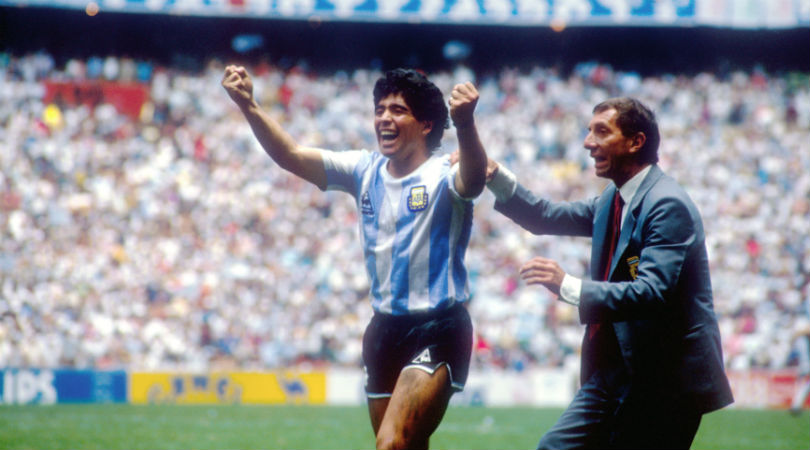
1. Diego Maradona (Argentina)
1986 was Maradona’s second dalliance with the World Cup. The first, four years previous in Spain, was an unmitigated disaster. Kicked from pillar to post all tournament long, he snapped in the match against Brazil, jabbing his studs into the groin of Joao Batista which resulted in his sending-off.
Maradona’s exploits against England in Mexico are well documented, but his tournament was so much more than that. He had already set up all three goals against South Korea, volleyed an equaliser against Italy and created the second against Bulgaria, and would go on to score two more mesmerising goals against Belgium, before laying on the winner for Jorge Burruchaga in the final.
 Join The Club
Join The Club










